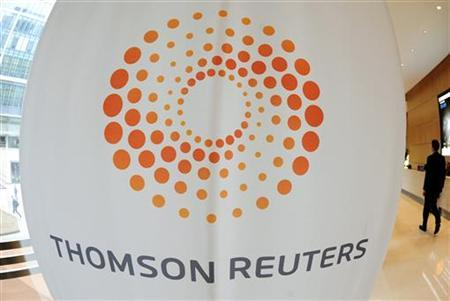Accounting
Thomson Reuters Urges Accounting Firms to Embrace Technology
Accounting firms elevate their relevance and provide more value to their clients by embracing technology and better aligning their services to meet the needs of today’s business owners and personal clients, a Thomson Reuters executive told 1,300 tax ...
Nov. 07, 2014

Accounting firms elevate their relevance and provide more value to their clients by embracing technology and better aligning their services to meet the needs of today’s business owners and personal clients, a Thomson Reuters executive told 1,300 tax and accounting professionals at the company’s annual users’ conference last week. These business owners and personal clients have been significantly influenced by our current mobile web, consumer-oriented world.
“Many accounting firms still favor dated and inefficient ways of doing business, effectively trying to serve their clients in the same manner they always have, even though that world may no longer exist,” said Jon Baron, managing director of the Professional segment in the Tax & Accounting business of Thomson Reuters. The company’s Professional segment provides accounting, tax, and practice management software and technology infrastructure to the accounting profession in the U.S. and Canada.
“Overall client experience matters more today than it has before,” Baron said. “It’s no longer enough to provide after-the-fact reporting and compliance work. Clients expect to benefit from the expertise and experience of the firm in the form of driving improved business and financial results, better tax planning programs, and more proactive, strategic direction and advice. They have been influenced by phenomenal changes in technology as consumers and want to interact with their service providers in a manner consistent with today’s digital, mobile, always connected world. They want communication and collaboration with their accounting firm to be seamless, accessible 24×7, and delivered in a convenient, simple, accessible, and secure format, with an easy-to-understand design interface across a myriad of devices.”
Baron provided data on technology trends, adoption patterns, and profession economic indicators, each providing insight as to where the profession is enjoying success, and where the pace of change of practitioners needs to increase. In addition to providing external profession data, Baron reported the results from a Thomson Reuters survey of accounting firms that found:
• Nearly 40% reported not offering a firm website.
• More than one-third are not leveraging a document management system and thus not taking advantage of paperless workflow efficiencies and the elevated client service delivered with client portals.
• Only 16% reported the use of cloud applications in the firm.
• Almost three-fourths reported that the primary method of delivering completed tax returns to the client is paper copy.
Clients are consumers. As such, they are bringing current consumer technology experiences — sometimes subconsciously — into their workplaces, including mobile devices, smart apps, cloud capabilities, and new consumer-oriented technology. This creates a very different expectation of how professionals serve them, Baron said, noting that there can be high risk if there is a disconnect between new client expectations and firm business models that have not embraced new methodologies consistent with today’s digital world.
“There are huge opportunities for firms that embrace strategies to manage today’s consumer-minded clients,” added Baron. “Today, all industries and professions must constantly be in alignment with elevated expectations and view technology as critical for maintaining the competitive edge that they need to thrive.”
